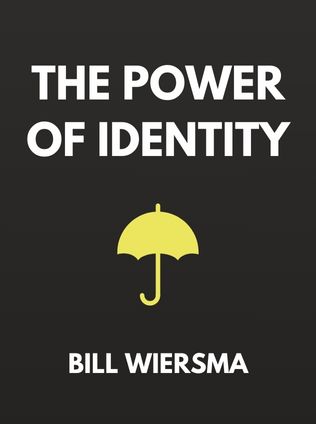
The Power of Identity
The Key to Personal and Professional Change
By Bill Wiersma
Published 11/2019
About the Author
Bill Wiersma is a respected thought leader in the fields of management consulting and personal development. He is the founder and principal of Wiersma and Associates, a firm known for its work with Fortune 500 companies under the brand Better Professionals. Wiersma's writings, including the influential The Power of Professionalism, focus on the significance of professional identity and its impact on personal and organizational growth. His expertise lies in advising senior executives on team development and fostering healthy organizational cultures.
Main Idea
The Power of Identity delves into the critical role that identity plays in shaping behavior and guiding decision-making. Wiersma posits that understanding one's identity is foundational to achieving personal and professional growth. The book argues that identity is not merely a static label but a dynamic, evolving construct that influences every aspect of an individual's life. By engaging with their identity, individuals can experience profound transformations, gaining clarity, purpose, and confidence. The book also explores how identity-based development can be a powerful tool for organizational change, enhancing both individual and collective performance.
Table of Contents
- Introduction
- Identity: A First-Order Mover of Behavior
- Identity Profiles
- Keystone Identities: The Key to Transformation
- Implications for Individuals
- Implications for Organizations and Families
- Breaking the Scourge of Shame
- Becoming a Better Person
- Conclusion
Identity: A First-Order Mover of Behavior
In this section, Wiersma explores the idea that identity is a primary driver of behavior. He argues that the question "Who am I?" is central to understanding why people act the way they do. This concept is illustrated through various examples, such as a cancer survivor who becomes an ardent supporter of cancer research, an accountant who prioritizes environmental concerns, or a business executive who redefines their political stance. These examples demonstrate that identity shapes decisions, often leading individuals to act against their short-term interests in favor of aligning with their core values.
"Identity is not just a set of characteristics; it's a guiding compass that influences our choices and actions." - Bill Wiersma
Wiersma emphasizes that identity is more than just a collection of labels or traits; it is a deeply ingrained sense of self that guides how individuals interpret situations and make decisions. The process of aligning actions with identity can occur both consciously and subconsciously. When faced with challenging decisions, individuals often rely on their understanding of their identity to navigate complex situations. This reliance on identity can provide stability and clarity, particularly in times of uncertainty.
Identity Profiles
Creating an identity profile is a key exercise in The Power of Identity. Wiersma encourages readers to develop a detailed profile that outlines their core identities. This profile helps individuals to articulate the different facets of their identity, which may include roles such as parent, professional, community member, and more. The process of creating an identity profile involves introspection and self-examination, challenging individuals to consider not just what they are, but who they are at their core.
Sign up for FREE and get access to 1,400+ books summaries.
You May Also Like
The Subtle Art of Not Giving a F*ck
A Counterintuitive Approach to Living a Good Life
By Mark MansonRich Dad Poor Dad
What the Rich Teach Their Kids About Money - That the Poor and Middle Class Do Not!
By Robert T. KiyosakiHow To Win Friends and Influence People
The All-Time Classic Manual Of People Skills
By Dale CarnegieFreakonomics
A Rogue Economist Explores the Hidden Side of Everything
By Steven D. Levitt and Stephen J. Dubner



















